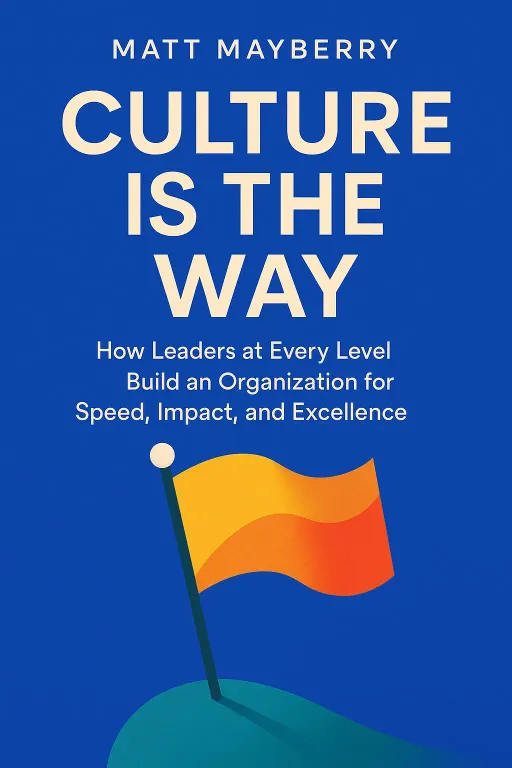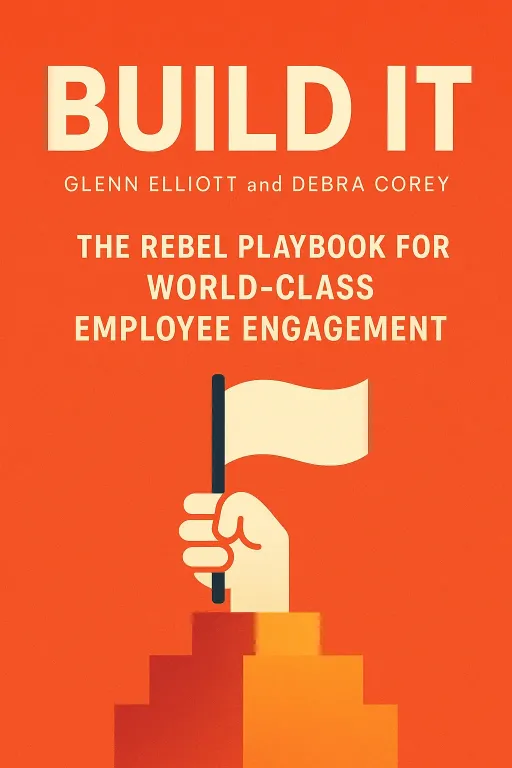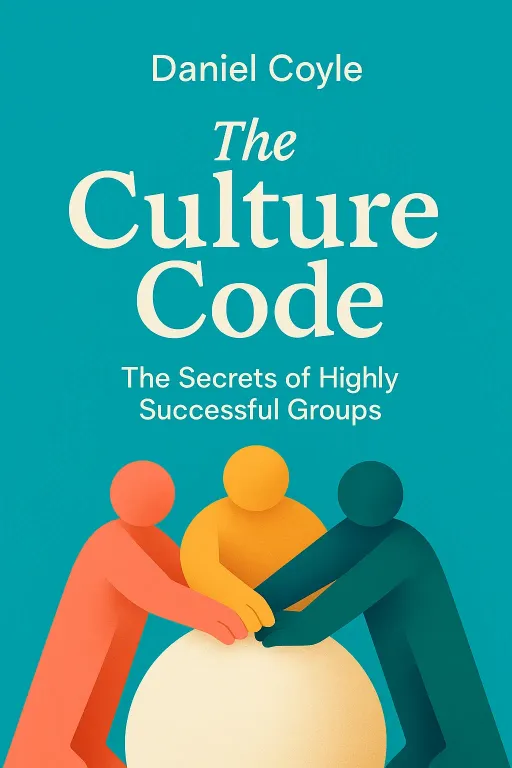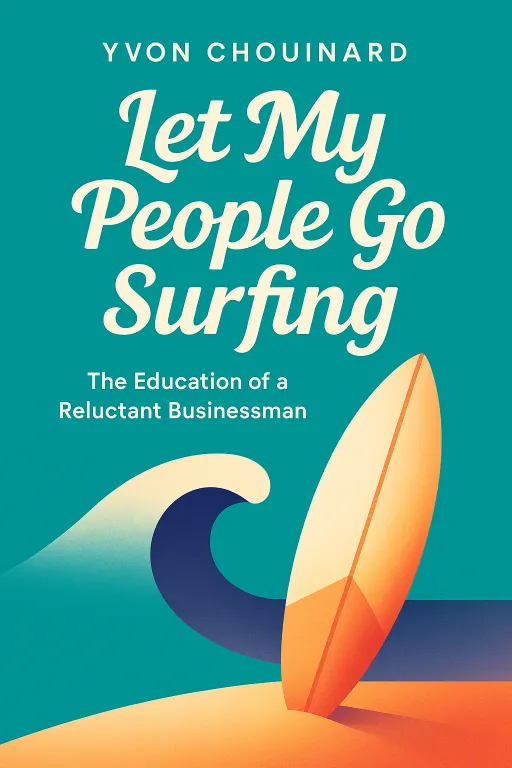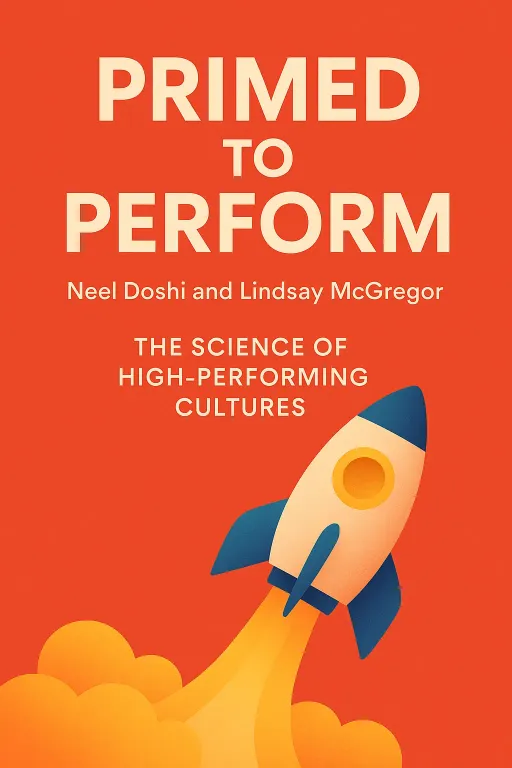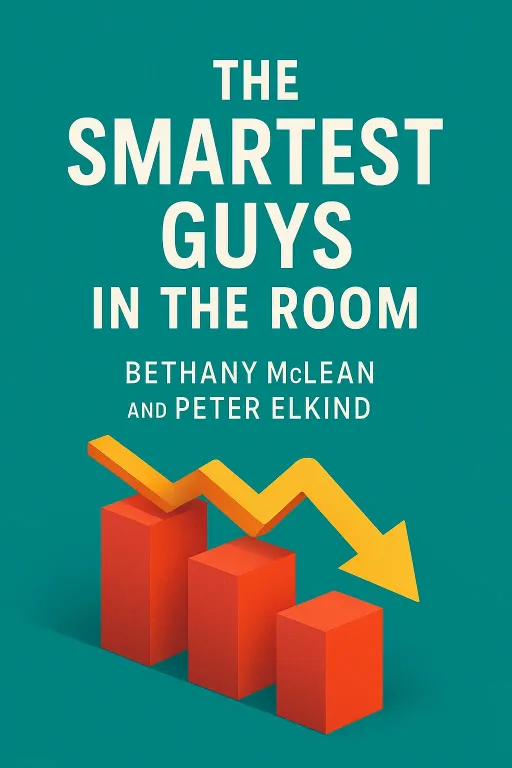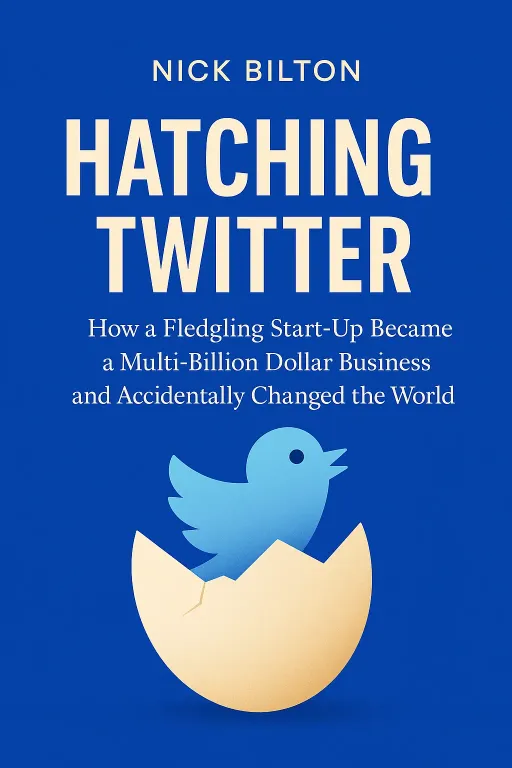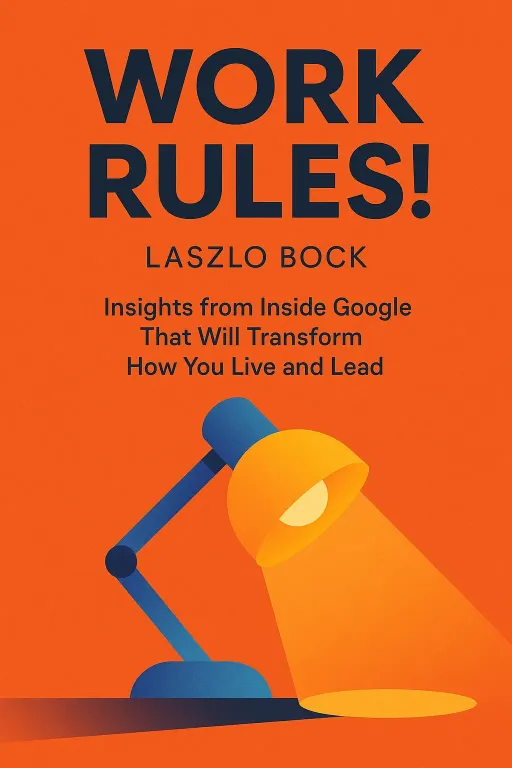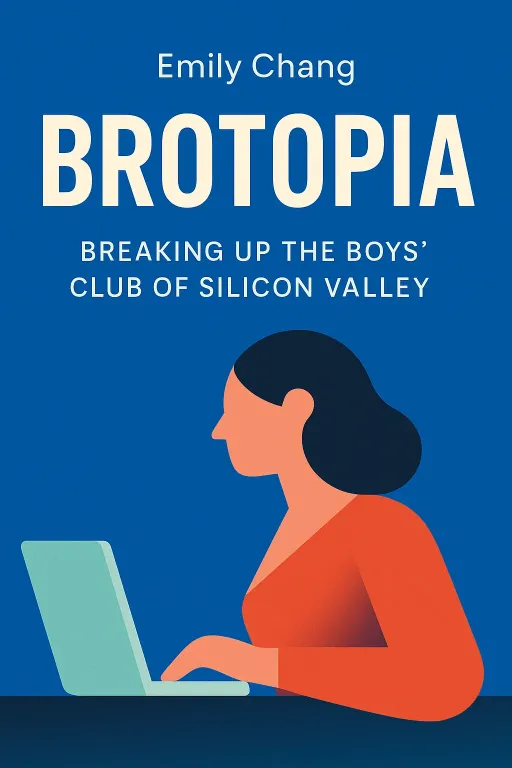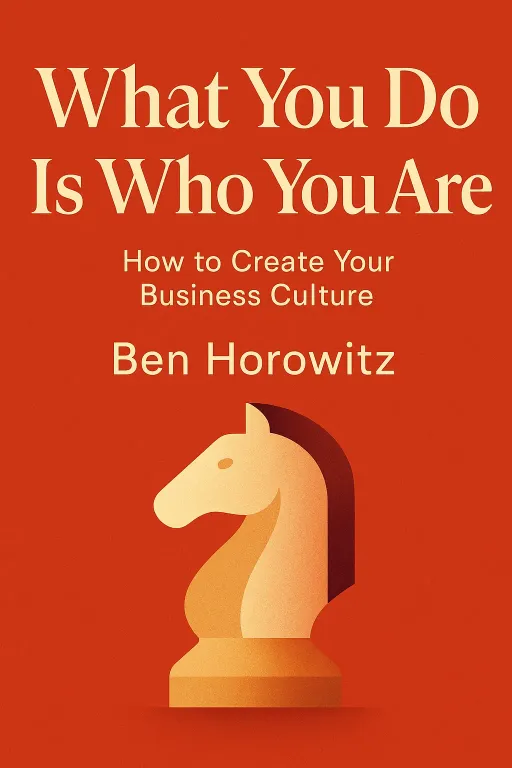
Samurai, Slaves & Startups
12 minGolden Hook & Introduction
SECTION
Michelle: Alright Mark, quick-fire. A book on business culture by a top Silicon Valley venture capitalist. What's it about? Go. Mark: Easy. Maximizing shareholder value, synergy, pivot-to-profit, and probably a whole chapter on the importance of kombucha on tap. Michelle: Close, but no. Try the only successful slave revolt in history, the code of the samurai, and how a gang leader transformed a prison. That's our topic today. Mark: Whoa. Okay, you have my attention. That is... not what I expected. Michelle: Exactly. We're diving into What You Do Is Who You Are by Ben Horowitz. And what's fascinating is that Horowitz, a legendary venture capitalist and co-founder of Andreessen Horowitz, argues that to understand culture at a place like Google or Netflix, you first need to understand leaders from history's most extreme situations. Mark: That’s a bold claim. I can already imagine some listeners thinking, "What does a warrior code have to do with my quarterly sales targets?" Michelle: And that's the point. The book got a lot of praise for its fresh take, but some readers and critics found the historical leaps a bit jarring. Horowitz isn't a professional historian, but he's obsessed with a single question: how do leaders create loyalty and action when the stakes are life and death? He believes those are the purest lessons in culture building. Mark: Huh. So it's about stripping away the corporate jargon to see the raw mechanics of human behavior. I'm in. Where do we start? The slave revolt, please.
The Revolutionary's Playbook: Culture Forged in Crisis
SECTION
Michelle: We start in the most brutal place imaginable: the French colony of Saint-Domingue in the late 1700s, which we now know as Haiti. It was the most profitable slave colony in the world, built on unimaginable cruelty. The culture was one of absolute terror and dehumanization. Mark: It’s hard to even fathom a starting point for change in that environment. How do you build a new culture from literally nothing but oppression? Michelle: You find a leader who understands that culture is what you do, not what you say. And that leader was Toussaint Louverture, a former slave who led the Haitian Revolution. Horowitz holds him up as the ultimate culture-builder because he had to reprogram everything. He couldn't just hang a poster that said "Be Free!" Mark: Right, because the very concept of freedom, of disciplined action for oneself, had been systematically destroyed. So what did he do? Michelle: He did things that were completely shocking and counter-intuitive. For example, to turn his army of former slaves into a disciplined fighting force that could defeat European armies, who did he hire to train them? Mark: I have no idea. Other rebel leaders? Michelle: White French officers. Former enemies. He incorporated them into his army to teach European military discipline. Imagine the outrage and confusion. His own people must have thought he was a traitor. Mark: Hold on. He brought the oppressors in to teach the oppressed? That’s an unbelievable risk. How did that not just implode? Michelle: Because Louverture was building a new culture based on a single principle: winning the war and creating a functional nation. Not revenge, not racial purity—just effectiveness. He demonstrated this with another shocking decision. After winning, many of his soldiers wanted to execute all the white plantation owners. Louverture said no. Mark: Why on earth not? After everything they'd been through? Michelle: Because he knew the plantations were the engine of the island's economy. He made the owners stay, pay their former slaves a quarter of the profits, and live on the plantations to be accountable. His actions screamed a new cultural message: "Our future is about prosperity and order, not retribution." He was making decisions that defined their new identity. Mark: Wow. So his actions were a form of communication, setting the new rules of reality. It wasn't about a mission statement; it was about who gets to live and who has to pay up. That's culture in its most raw form. Michelle: Precisely. And Horowitz finds a similar, though very different, example in another warrior culture: the samurai of Japan. Mark: Okay, I can see the warrior connection. But the samurai seem like the opposite of a revolution. They were all about tradition, honor, a rigid code. Michelle: Yes, but Horowitz argues their code, bushido, was powerful for the same reason as Louverture's leadership: it was a code of action. For the samurai, virtues weren't beliefs you held; they were things you actively did. Mark: Can you give an example? What does that look like in practice? Michelle: There's a great story in the book about a samurai in the 1600s who was called to give testimony and was asked to sign a written oath to the gods to verify his truthfulness. He refused. Mark: Because he was lying? Michelle: Because he was insulted. He said, "A samurai’s word is harder than metal. Once I have decided something, not even the gods can change it." His word was the action. It needed no backup. The culture was so strong that a promise was a physical, unbreakable thing. Mark: I see. The culture isn't the rulebook; it's the ingrained behavior of the people living by it. But the samurai had another famous, and kind of dark, cultural element, right? The whole focus on death. Michelle: They did. The famous line from the Hagakure is "The way of the warrior is to be found in dying." Horowitz points out this wasn't about being morbid. It was a cultural tool for focus. Mark: How so? That sounds like a tool for depression. Michelle: By constantly keeping death in mind, a samurai was forced to prioritize. It clarifies what's truly important. If this could be your last day, are you going to waste time on trivial matters? Or are you going to be loyal, attentive, and fulfill your duty with absolute precision? Mark: Okay, now I get the business translation. It's the ultimate filter for bullshit. You don't have to literally tell your team to contemplate their mortality, but you can build a culture that constantly asks, "Is this the most important thing we could be doing right now?" It creates a sense of urgency and purpose. Michelle: Exactly. It’s about creating focus by acknowledging limitations. Whether it's a revolution or a centuries-old warrior code, the lesson is the same: a strong culture is a set of actions, often forged in high-stakes environments, that tells everyone what truly matters.
Designing Your Code: Culture as an Intentional Operating System
SECTION
Mark: That makes sense. These historical examples are powerful because the stakes are so high. But how does a modern CEO, who's worried about server uptime and not a cavalry charge, actually apply these lessons? It feels like a huge leap. Michelle: It is, and that's the second half of the book. Horowitz argues that you have to be just as deliberate as Louverture or the samurai. You have to consciously design your culture like an operating system. And his modern case study for this is just as intense: Shaka Senghor, who transformed a prison gang. Mark: From a slave revolt to a prison gang. Horowitz really doesn't stick to the Harvard Business Review case studies, does he? Michelle: Not at all. Senghor was a leader of a gang called the Melanics. They had a code, but it was mostly about violence and intimidation. After years of introspection, Senghor decided to change it. He wanted to shift the culture from being "sophisticated thugs" to being about self-improvement and accountability. Mark: A noble goal, but I imagine that's a tough sell in a prison yard. You can't just call a meeting and announce a new mission statement. Michelle: You can't. So he used a method he called "constant contact." He made his crew eat together, work out together, and study together in mandatory groups. They had daily classes on emotional intelligence. He was constantly, physically reinforcing the new set of behaviors. He was rewriting their daily actions. Mark: That's fascinating. The "constant contact" sounds a lot like the immersive onboarding some tech companies are famous for. It's about creating a new, shared reality through shared experience. It's not a memo; it's a lived experience. Michelle: Precisely. And this is where Horowitz brings it all home for modern companies. He says you can engineer culture with two key tools: "shocking rules" and "memorable lore." Mark: "Shocking rules." That sounds... HR-unfriendly. What's a shocking rule? Michelle: It's a rule that's so memorable and unusual that it vividly illustrates a core virtue. His own firm, Andreessen Horowitz, has one. Their core virtue is "respect for the entrepreneur." To make that real, they have a rule: if any partner is late for a meeting with an entrepreneur, they are fined ten dollars per minute. Mark: Ten dollars a minute? For a multi-billion-dollar venture capitalist, that's nothing. It's pocket change. Michelle: Exactly! It’s not about the financial penalty. It's about the signal. It's a weird, specific, shocking rule that makes every single person in that firm hyper-aware of punctuality and the respect it represents. It’s a story they can tell. It makes the virtue of "respect" an action, not just a word on a wall. Mark: I love that. It’s a behavioral nudge disguised as a rule. It’s designed to be talked about. What about the other tool, "memorable lore"? Michelle: That’s about creating legends that outlive the policy. The best example is from Netscape in the 90s. The CEO, Jim Barksdale, was frustrated that the company was like a debate club. Decisions were made, unmade, and re-debated endlessly. Nothing got done. Mark: Oh, I know that culture. Analysis paralysis. Michelle: So at a company all-hands meeting, Barksdale laid out three new rules. He said, "First, if you see a snake, don't form a committee, don't schedule a meeting, just kill the snake. Second, don't go back and play with dead snakes. Stop revisiting decisions that have already been made. And third, all opportunities start out looking like snakes." Mark: That is brilliant. It's funny, it's visual, and it's a complete cultural reset in one simple story. Michelle: It changed the company overnight. "Kill the snake" became the mantra. It was a piece of lore that gave everyone permission to be decisive and take action. It was far more powerful than any corporate value of "efficiency" or "bias for action." Mark: Because it's a story, not a slogan. You can't put "be decisive" on a poster and expect it to work, but you can tell everyone to kill the snake, and they get it instantly. It’s culture as a meme. Michelle: And that's the core of Horowitz's argument. Whether you're leading a revolution, a samurai clan, a prison gang, or a tech company, your culture is the collection of stories you tell and the actions you take. It's who you are.
Synthesis & Takeaways
SECTION
Mark: Okay, so when you strip away the samurai swords and the prison yards, what's the one thing a leader listening right now should really take away from this? Michelle: It's that your culture already exists. It's defined by what your team does when you're not in the room. Horowitz uses a military saying: "If you see something below standard and do nothing, you’ve just set a new standard." Mark: That’s powerful. Inaction is an action. It's a decision to accept mediocrity, or worse. Michelle: Exactly. So the question isn't if you have a culture, but whether it's the one you designed or one that just happened by accident. And most of the time, accidental cultures are not good. The book's title is the ultimate takeaway: What You Do Is Who You Are. Your actions, and the actions you tolerate, define your company's identity. Mark: So the challenge for everyone listening is to identify one thing—just one—that's happening in your team or company that doesn't align with the values you think you have. And then... do something about it. Kill the snake. Michelle: I love that. And we'd love to hear what snakes you're killing. Share your stories with us on our social channels. We're always curious to see how these ideas land in the real world. Mark: It’s a great way to start being more intentional about the culture you’re creating, even if you’re not a CEO. It applies to a family, a sports team, any group. Michelle: Absolutely. It’s a universal principle. Mark: This was fantastic, Michelle. A book that connects the dots between a slave rebellion and a software company is my kind of read. Michelle: This is Aibrary, signing off.
